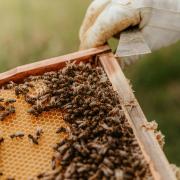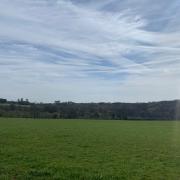
Is global warming affecting us right now?
Many of you will probably answer with a no because it is safe to say that it is freezing; the lowest recorded temperature this winter has been a very chilly –9.7 degrees Celsius, the coldest November day in six years according to recent studies! Also scientists from The Intergovernmental Panel on climate change once predicted an increase in temperature by 0.3 degrees per decade but are now baffled due to the fact that our planet's temperature has not increased at all for 2 decades. Clearly this is evidence in oppose of global warming right?
Wrong! In fact geologists claim how this recent bitterness in weather counterintuitively, further echoes the case of global warming rather than the reverse. Nevertheless, I am sure that many of you will be wondering about how this phenomenon can possibly be true. Well, Dr Summerhays states how "cold winters makes some people believe that global warming has stopped. It has not. Although average surface warming has been slower since 2000, the Arctic has gone on warming rapidly throughout it." Furthermore, research at Tokyo University and Japan's national institute of polar research articulate how the rapid decline of Arctic sea ice is linked to cold winters. This is all due to global warming causing the jet stream to become more volatile, inevitably causing us in Britain to experience a sudden plunge in temperature.
Moreover, further consequences of climate change include rising sea levels. In fact, The UK climate projections of 2009 estimated a sea level rise between approximately 13 cm and 76 cm for the UK by 2095; a truly shocking thought to consider. Furthermore, this study also depicts how areas including South Wales, North-West Scotland, Yorkshire, Lincolnshire, Thames estuary and East Anglia have been identified as particularly vulnerable to coastal flood risk. This, indeed shows how climate change is a serious topic and strikes as very 'real' because at the end of the day it us, citizens of a technical and energy hungry society that are the driving force of global warming as we burn fossil fuels in order to satisfy our basic needs. Thus, in order to protect our children and grandchildren from this catastrophe and more shouldn't we invest more effort and money in combating this issue?
By Umeh Jamiath, The Sydney Russell School


























